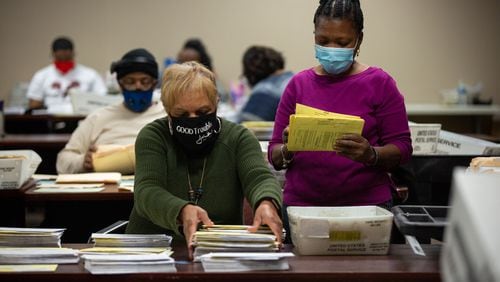About the columnist
Gracie Bonds Staples is a senior enterprise writer for the The Atlanta Journal-Constitution. She joined the AJC in July 2000 after stints at the Fort Worth Star-Telegram, Sacramento Bee, Raleigh Times and two Mississippi dailies. Gracie graduated from the University of Southern Mississippi with a degree in journalism in 1979. She and her husband, Jimmy Staples, have two daughters, Jamila and Asha.
Kelly Wittes begins slowly, wondering out loud if she’s about to do the right thing.
If she tells Joshua’s story will it help or just make things worse? What if talking about Joshua’s struggle encourages other kids to take their lives, too?
“I always have that fear,” she says.
More than 50 research studies worldwide have found that certain types of news coverage can increase the likelihood of suicide. But Kelly Wittes is convinced silence can, too.
Not many are talking now. While it robs us of our children, suicide is still considered a private matter, something to be shared only among family. Maybe we ought to rethink that.
Between 2007 and 2013, the rate among adolescents ages 10 to 19 increased 34 percent, from 3.77 to 5.05 per 100,000 population. In 2013, suicide surpassed homicide to become the second leading cause of death among children and teens.
Just weeks after his 16th birthday, Joshua hanged himself in his hospital room.
That was four years ago but for Wittes, talking about it hasn’t gotten any easier.
There’s a stigma associated with suicide; no matter how many people are lured into its grip we’d rather pretend it doesn’t happen. Too many still wrongly believe suicide is an indication that you’re weak, bad or both. And if you’re the parent like Wittes, people believe you failed miserably.
It’s true we’ve become a more open society. The revolution that has occurred in the gay community alone is worth noting. People who wouldn’t dare come out of the closet five years ago are now getting married. We’re far less homophobic than we used to be.
Why? Because familiarity begets acceptance. It can be the same way with suicide if we put our judgment aside and listen.
I did that one morning last week when Kelly Wittes opened her life to me and I get it. Even engaged parents can sometimes feel lost and helpless. They struggle with who to trust, and are constantly searching for that one thing that will help their kid get better. Sometimes, no matter what they do or how hard they try it isn’t enough.
And when that happens, for the sake of other children, they try some more like Wittes. Win or lose, they continue to bring suicide out in the open so there's no longer a stigma attached to it. Ninety percent of people who take their lives have a mental disorder like depression. The good news is depression can be treated. The bad news is most of us don't know the warning signs.
Joshua was one of the brightest, sweetest kids you could ever meet. He was a star athlete who excelled at tennis and lacrosse. And when he smiled, revealing the dimples in his cheeks, you melted like an ice cube in summer.
“Everybody loved him,” his mother said.
But he felt alone and confused.
Wittes can’t explain why. It’s just one more question for which she’ll never have an answer.
Here’s what she does know. She and her husband Rob were the happiest they’d ever been when Joshua and his twin brother came into their lives 20 years ago. They did their best to be good parents, to be present in their sons’ lives.
Not in an overbearing way but just enough to recognize mood swings, to see to their needs. That’s why it didn’t take long for her to see Joshua was in trouble.
“Something was off,” Wittes said.
He would have outbursts of anger and when she confronted him he was very apologetic. He just needed something to calm down. Eventually he didn’t care so he didn’t apologize for anything. The angry outbursts. His violent, disrespectful behaviour.
“That’s when I really got scared,” his mother said.
She and Rob eventually forced him to see a psychologist and he was admitted into a psychiatric hospital.
When they thought things were getting better, they were getting worse. No doctor helped. No hospital. No amount of love and understanding.
She and Rob were out for dinner the night they got the call no parent ever wants to get.
Joshua had tried to take his life and was en route from the psychiatric hospital, where he was on suicide watch a second time in six months, to a local children’s hospital.
It was March 10, 2011. Joshua was 16. A sophomore at Lassiter High School and just like that, he was gone
So now, over a toasted bagel and a cup of coffee, his mother shares his short life, hoping it’ll force suicidal thoughts out into the open once and for all and somehow make a difference in the lives of others.
It’s been nearly four years since that night and people still ask for one of the bracelets a friend made to help defray the family’s hospital costs, Wittes says, pulling the blue plastic from her wrist. Kids still visit his Facebook page, she says with tears rolling down her cheek. Look at all the stones people have placed on his grave, she says whipping out her cell phone.
“It’s heartbreaking to think that he thought that no one loved him, that they thought he was weird,” Wittes said.
Her honesty floors you. In talking about Joshua’s pain, Wittes has done what no amount of statistics can ever do.






